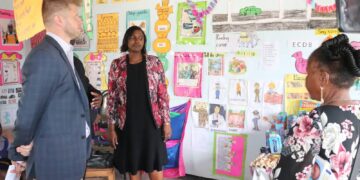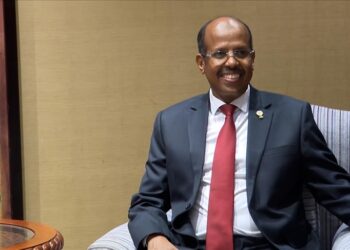The English and German languages use the term “soft skills” to refer to a set of interpersonal competences and attributes that permit a person to successfully cooperate with others, identify goals/problems and to plan and achieve creative responses to problems. For example, the Oxford English language dictionary defines soft skills as “competencies that employees possess associated with activities such as customer handling, communication, problem-solving, and teamworking.” Soft skills are also sometimes defined in contrast to hard skills which UNESCO defines as “skills typically related to the professional or job-related knowledge, procedures, or technical abilities necessary for an occupation.” In our science and technology dominated environment, this might signify a somewhat pejorative shade of meaning to “soft skills”. The Spanish language uses the term “habilidades blandas”, which has the same connotations as the English term. In contrast, in the French language “compétences générales” (general competences) is used and in Italian the term of use is “competenze trasversali” (transversal competences). This is interesting because these terms imply a much clearer understanding of the importance of the skill sets in question; they play an essential role in communication and social adaptation and are crucial for the successful construction of relationships including in professional environments of all types and levels. It would be of interest to know from further research how cultures outside of Europe, USA, Canada, Australia and New Zealand denote and perceive of “soft skills”. Note that although some people include characteristics such as loyalty, enthusiasm, punctuality, and a strong work ethic in their definition of soft skills, critics rightly argue that these are not appropriately categorizable as skills but rather as qualities or attributes that someone has and may (or may not) choose to display at work.
Although an essential part of human social interaction ever since humans began cooperating with each other, the term “soft skills” to describe the corresponding set of aptitudes originated in the late 1950’s when the United States military began “investing heavily in training procedures that utilized technology to improve workflows and learning efficiencies”. The US military created a regulation (a doctrine, a set of guidelines or rules) called Systems Engineering of Training (CON Reg 350-100-1) that laid the groundwork for designing and producing courses for specific Army jobs. According to author Dr. Paul G. Whitmore, the courses created under this regulation would cover job-related skills involving people and paper but not involving machines. The skills included: inspecting things, supervising people, preparing reports, and designing structures. This was the catalyst for the creation of ‘soft skills’ as a term. While the term did not appear in CON Reg 350-100-1, the regulation spurred the analysis of skills and skill development in the modern military.” The term “soft skills” eventually formally appeared in a report for the 1972 CONARC (Continental Army Command – USA) Soft Skills Conference that included three papers:
“What Are Soft Skills?” By John P. Fry and Paul G Whitmore (describes a questionnaire designed to clarify the terms “hard” and “soft” skills. Soft skills are defined as important job-related skills that involve little or no interaction with machines and whose application on the job is quite generalized.)
“The Behavioral Model as a Tool for Analyzing Soft Skills” by Paul G Whitmore (discusses leadership and motivation job functions in terms of principles of behavior modification and describes development of a behavioral model of the different levels of an organization.)
“Procedures for Implementing Soft-Skill Training in CONARC Schools” by John P. Fry (describes the instructional approach based on a tested problem-solving framework. Small groups and student-centered learning were cited as important factors in the instructional approach.)
The 1972 CONARC Conference provided the basis for formulating a definition of soft skills as: (1) important job-related skills (2) that involve little or no interaction with machines. The situation or context in which the skills may be deployed contains a great deal of uncertainty concerning the physical and social environments and the consequences of different ways of accomplishing the job function. Job junctions about which we know a good deal are hard skills and those about which we know very little are soft skills. The US Defense Department concluded that what made a team effective, in combat or support roles was predicated on strong soft skills: without these skills, leadership and group cohesion would be insufficient for successful completion of missions and for eventual transition to the civilian workplace.
Indeed, the civilian workplace is now keenly aware of the critical importance of soft skills even though these skills are often intangible and difficult to quantify in comparison with hard or technical skills. Employers know that soft skills contribute to employee productivity, positive work environment and improved customer service and drive innovation and organizational success. Essential soft skills include effective communication (leads to better collaboration and reduces misunderstandings, enhances interpersonal/intercultural/gender interactions, has a strong non-verbal component which in a digital environment is not present), teamwork/active listening (leverages diverse perspectives), adaptability (necessary to navigate rapid changes in environment and technology), leadership/empathy (ability to motivate and inspire others and resolve conflicts), critical thinking/problem solving (stimulates innovation, creativity and effective solutions valued by employers) and time management.
According to various surveys, soft skills are considered by employers to be of very high importance and (at least in the UK) sadly lacking amongst new recruits. In my experience as a University Director, I found that the essential soft skills are not particularly well-developed among the student body at the Bachelor and Master levels. These skills are valuable not only for workplace advancement but also for long-term career growth. Clearly, the transmission and development of the so-called soft skills are of critical importance to the success of TVET students worldwide.
C. Rodrigo Sáez Muñoz, PhD
Secretary General
Worlddidac Association

















































































 EduTimes Africa, a product of Education Times Africa, is a magazine publication that aims to lend its support to close the yawning gap in Africa's educational development.
EduTimes Africa, a product of Education Times Africa, is a magazine publication that aims to lend its support to close the yawning gap in Africa's educational development.